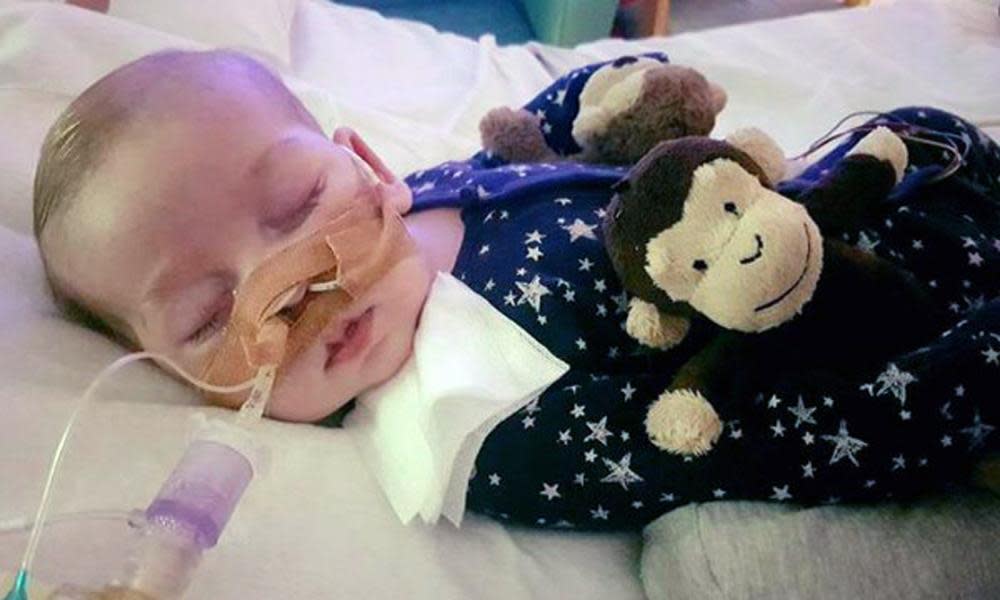Charlie Gard doctors can stop providing life support, court rules

A couple who want to stop doctors taking their baby son off life support so they can take him to the US for treatment could take their case to the supreme court.
Appeal court judges ruled on Thursday that doctors could stop providing treatment nine-month-old Charlie Gard, who is being kept on a ventilator at Great Ormond Street hospital in London.
Chris Gard and Connie Yates had sought to keep their son alive long enough to travel with him to the US for experimental treatment that may prolong his life.
Lawyers representing the couple told appeal court judges that they would like the supreme court to consider the case.

Charlie, who was born on 4 August last year, had a form of mitochondrial disease that causes progressive muscle weakness and brain damage. He can only breathe through a ventilator and has been fed through a tube.
Lord Justice McFarlane, Lady Justice King and Lord Justice Sales analysed evidence at a court of appeal hearing in London. A high court judge last month ruled against a trip to the US, and in favour of Great Ormond Street doctors who said they believed it was time to stop providing life support for Charlie.
Richard Gordon QC, who led Charlie’s parents’ legal team, told the appeal court judges that the case raised serious legal issues, including the possibility that Charlie might be being unlawfully detained and denied his right to liberty.
“They wish to exhaust all possible options,” Gordon said in a written outline of Charlie’s parents’ case. “They don’t want to look back and think ‘what if?’. This court should not stand in the way of their only remaining hope.”
Gordon said judges should not interfere with the exercising of parental rights and added: “What is really at stake in this case is the state, on a massive scale, intruding in your right to private and family life.”
But Katie Gollop QC, who led Great Ormond Street’s legal team, suggested further treatment would leave Charlie in a condition that gave him “no benefit”. The therapy proposed in the US was “experimental” and would not help Charlie, she said.
“There is significant harm if what the parents want for Charlie comes into effect,” she told the appeal judges. “The significant harm is a condition of existence which is offering the child no benefit.”
Gollop said nobody knew whether Charlie was in pain, “because it is so very difficult because of the ravages of Charlie’s condition. He cannot see, he cannot hear, he cannot make a noise, he cannot move.”
After the judges upheld the ruling, Lord Justice McFarlane praised Charlie’s parents for their composure and dignity, and said: “My heart goes out to them.”

 Yahoo News
Yahoo News 
